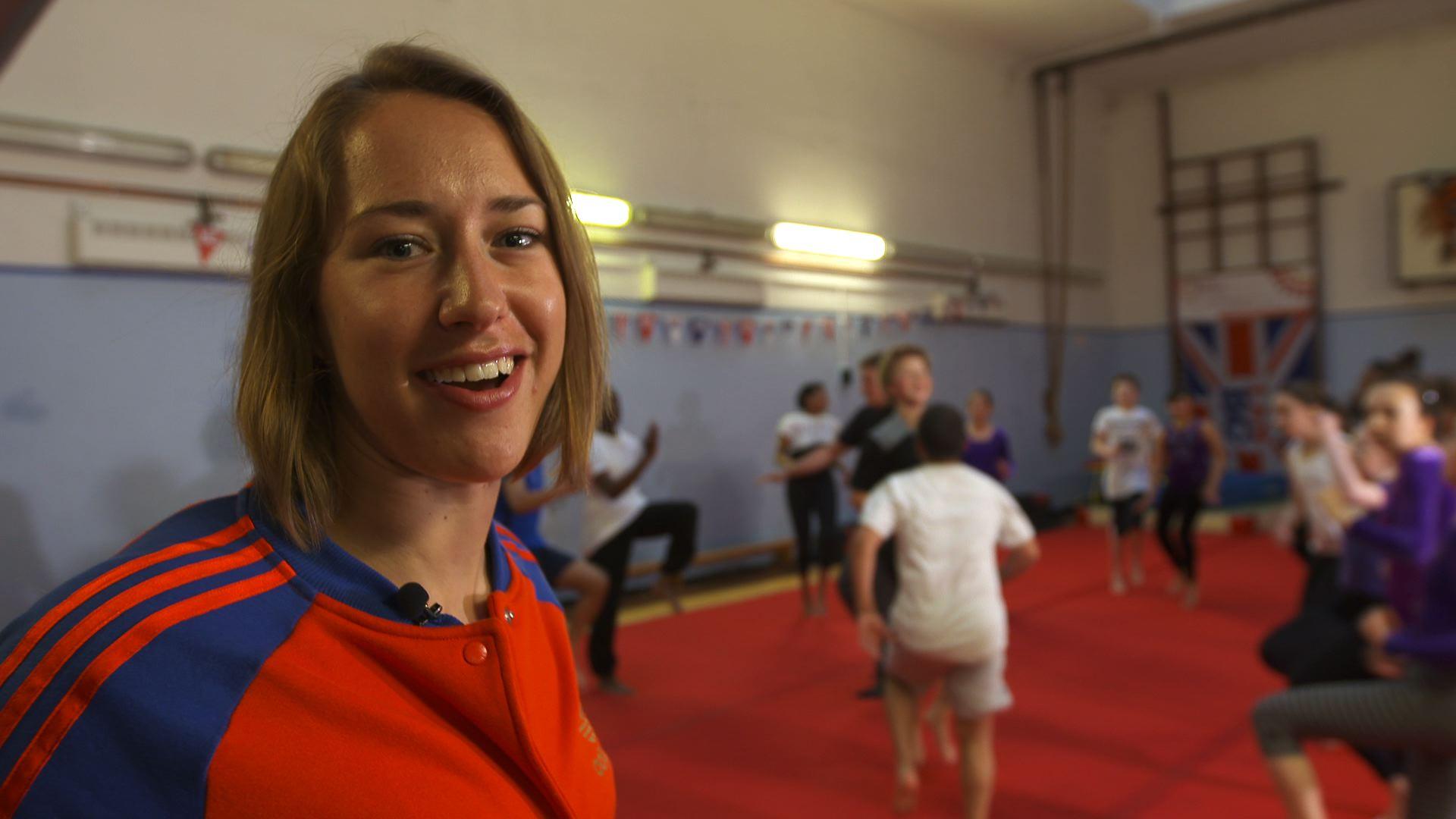Get Inspired: GYMNASTICS (RHYTHMIC)
- Published
Take a look at our Gymnastics activity page to get a full description of all the different types of gymnastics to choose from.
Baker inspire
Rhythmic gymnastics provides one of the most finely tuned spectacles of the Olympic programme and a true demonstration of athletic prowess matched with timing and poise.
Like synchronised swimming, rhythmic gymnastics is only contested by women. It uses many positions and leaps derived from classical ballet, including pliés, jetés, attitudes and arabesques.
Why is it good for you?
Gymnastics requires strength, mobility, endurance, flexibility, body control and coordination.
The high level of physical fitness needed to excel helps encourage a healthy lifestyle, including regular physical activity and eating a well-balanced diet.
The wide range of movements involved works every muscle in the body and burns approximately 315 calories per hour.
A University of Athens study found rhythmic gymnastics can help athletes develop strong, healthy bones and joints as it is a weight-bearing activity. This reduces the risk of developing osteoporosis later on in life.
As falling and rolling are key parts of gymnastics training, athletes learn how to spread the force of impacts across their whole body. This can help with injury prevention in sport and other situations.
Get involved
Gymnastics is a breathtaking sport featuring a range of disciplines such as artistic, trampoline, acrobatics, aerobics and tumbling.
It is enjoyed by an estimated four million people in the United Kingdom.
Rhythmic's combination of the flexibility of gymnastics, the technical knowledge of ballet and the expression of modern dance makes it a unique activity.
There are more than 1,600 gymnastic clubs in the country and you can find the one closest to you by using the British Gymnastics club finder., external You only need to buy your own sports kit as the different apparatus and equipment can be found in clubs.
An extensive range of training programmes for people of all abilities and ages are available in sport centres, gyms, schools, universities and colleges.
British Gymnastics' GymFusion scheme, external has seen over 2000 performers take part in the non-competitive, show style festivals, with 11 events set to set to take place across the UK in the future.
Contact your local British Gymnastics development officer, external to discover information on how you can get started, with the GymMark scheme, external ensuring the highest standards are adhered to throughout the UK.
Further information can be found on the English Gymnastics,, externalWelsh Gymnastics,, externalScottish Gymnastics, external and Gymnastics Northern Ireland, external websites.
History
Rhythmic gymnastics developed in eastern Europe during the 19th and early 20th Centuries. Elements from Swedish exercise routines and German muscle-building techniques were incorporated during the early days of the sport's evolution.
When it moved onto the radar of gymnastics' governing body, the Fédération Internationale de Gymnastique (FIG), in the middle of the 20th Century, its devotees were calling it "modern gymnastics". The FIG recognised rhythmic gymnastics as an official discipline in 1962 and the first World Championships were held in 1964.
That first title was won by Ludmila Savinkova of the Soviet Union. Its Olympic debut came at the 1984 Games in Los Angeles and the team event was introduced 12 years later in Atlanta, with Spain taking gold.
In 1984, the venue's air conditioning played havoc with the ribbon routine, allowing rank outsider Lori Fung of Canada to win gold.
More on the IOC website, external
Are you inspired to try Rhythmic Gymnastics? Or maybe you are an enthusiast player already? Get in touch and tell us your experience of the activity by tweeting us on @bbcgetinspired, external or email us on getinspired@bbc.co.uk., external
See our full list of activity guides for more inspiration.
- Published15 May 2014
